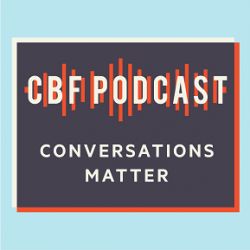By Terrell Carter
Have you ever had the opportunity to meet your hero or another person you greatly admired face-to-face?
How did that go? Did it turn out like you had hoped? Were they still as nice or as smart or as talented as you thought they were after you met them? Or did your rosy picture of them get turned upside down?
In a sense, Luke 24 and the story of Easter is an exercise in how Jesus’ disciples and followers dealt with the frustration, agitation and disappointment of their hero failing them by dying before he instituted a much-anticipated Kingdom.
In three short years, Jesus had become the hero to multitudes of people. He had built a solid following based on the miracles that he regularly performed. Whenever he showed up in a town, there were throngs of people waiting to see him and to experience his next feat. These people expected that he would begin to perform acts of a greater scale and that incorporated political freedom.
When Jesus did not make politics his focus, and instead focused on sharing God’s love, the people who previously adored and admired him began to turn their backs on him. They even agreed with the chief priests and other religious leaders who saw Jesus as a threat. Eventually they co-signed for his crucifixion. Jesus was crucified and buried in a borrowed tomb.
What do you do when your hero disappoints you? When it turns out they are not as powerful as you hoped? In Luke 24, two people who had followed Jesus decide to go for a walk on the Emmaus Road.
As they walk, they are approached by a person who seems to be oblivious to the events of the preceding days. This stranger joins them on their walk and asks them why they are down and distressed.
Cleopus responds by asking the stranger, “Are you new in town? Have you not heard about what happened over the weekend? Jesus, a man of God, who did great and marvelous things was killed. And we had hoped he was the one that would free Israel. We hoped that he was the Messiah.”
The phrase that stood out most clearly to me in this passage was the phrase “we had hoped.” When was the last time you hoped for something? Seriously, think about it. When was the last time you hoped for something that was out of your control? I am not trying to get personal with you, but I do think that if you have ever placed your trust in God for something and in return experienced unfulfilled hopes or dreams, and are brave enough to admit it, you would likely have been welcomed on that walk that day.
The remarkable thing about this story, the Easter story, is that it does not end with the disappointment of those disciples. It does not end with their hearts broken. It does not end with their, or Jesus’, defeat. The Easter story continues with the revelation that this stranger is really no stranger. Instead, he is the man that they had previously mourned, the fulfillment of the prophecies that they hung their hats on, and he is hope personified. He is God’s Son and he has returned from the grave.
Although Easter is about death and resurrection life, that is not all that it is about. It is about God loving all of us enough to speak into our lives and tell us that, no matter what we are going through, or how hard life may get, God will ultimately make it right. Even when our circumstances seem the darkest.
Whenever we find ourselves on the road to Emmaus, like the two disciples from the story, or find ourselves trying to recover from something strange that has happened in our lives, if we pay attention, we can hear God speaking to us, we can recognize God walking with us and reassuring us that things may not be perfect, but they are not as bad as we think they are because tomorrow is on its way. For that hope we can be thankful. Amen.
Terrell Carter, D.Min., is assistant professor and director of contextualized learning at Central Seminary in Shawnee, Kan., and pastor of Webster Groves Baptist Church in Webster Groves, Mo.
Note: The views expressed here in columns and commentaries are solely those of the authors.
Interested in writing for CBF at Patheos? Submit your column idea to CBF Communications Director Aaron Weaver at [email protected].











